Where I foolishly attempt to read and review 30 books in 30 days.
Don't wanna be here? Send us removal request.
Photo
Okay, now to differentiate, since I have gone over that with my maths-degree mate quickly.
ln(x).ddx = 1/x (may have the notation slightly wrong, but you get the point).
hence F'(x) = 4/(x+1) + 16/(4x-1) - x/(x^2+5)
The 16 comes from differentiating the inside of the logarithm (4*4), and the x from the same thing (1/2 * 2x)
EDIT: Apparently tumblr will not let me reblog myself on the same account. Damn.

UGGGGGGGGGGGGGGGGHHHHHH
8 notes
·
View notes
Link
Mr. Emerson, I don’t see how you can justify funding massive reform to primary and high school education by cutting from another area of education - it defies logic. Australia needs a stronger education system, at all levels. Weakening universities is incredibly short-sighted and means these...
5 notes
·
View notes
Text
Quick Update
Ok, so since 30books in 30days ended, I've been struggling to not read stuff. Despite Uni starting (and having to go through stacks of paper every night; my geopolitics reader is 500+ pages of photocopies), I've still managed to read Veronica Roth's Insurgent, Scott Westerfeld's Pretties and Specials (yey for Dystopian lit) and make more of a dent into George RR Martin's A Storm of Swords.
At this rate, everything in my mini-library won't last the year, even with Uni work.
I am unsure how to feel about this development
2 notes
·
View notes
Text
Settling a debate
It has been brought to my attention that not everyone agrees with my opinion that Harry Potter's characters are the most familiar of the generation. That's cool, I love opinions and the fact that everyone has one, and disagreement breeds debate, which is similarly cool. So, the question I pose to you is this: Harry Potter or Mean Girls?
4 notes
·
View notes
Photo
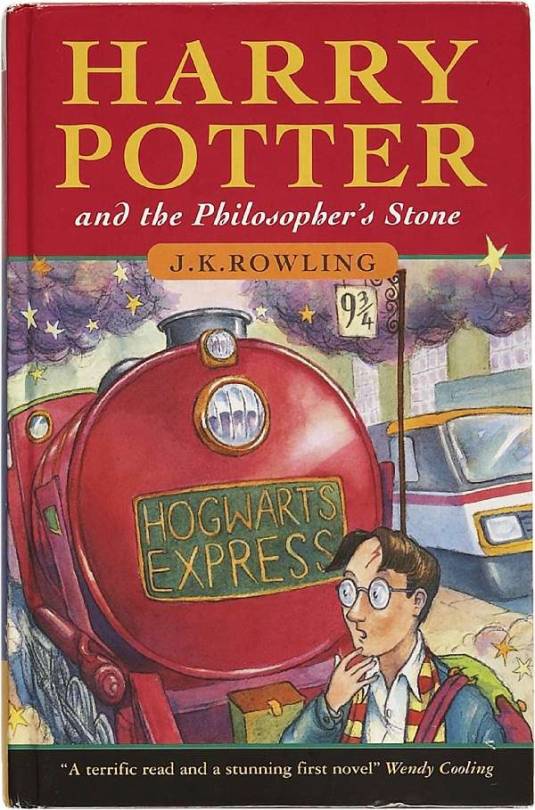
Day Thirty: Harry Potter and the Philosopher's Stone - J.K. Rowling (223pp, Bloomsbury, 1997)
What better way to finish a tumblr challenge than with one of the bigger fandoms in existence? Plus it takes me on a nostalgia trip, which isn't a bad thing either. Potter was probably the first novel I'd ever read, probably circa 2001, just when it got huge via the first film. And even though I was never the series' biggest fan, it was so iconic in shaping childhoods that I'd read every book within weeks of it coming out. It was the generation-defining work for '90s kids.
I don't think I need to tell you anything about the story; pretty much everyone knows it in some form, but what I can discuss is the writing. For a book primarily aimed at the children's to early teens market, Rowling's prose is fantastic. It doesn't descend into patronising older readers, while still being simplistic enough for kids to understand. She strikes the balance perfectly, and while in my humble opinion the latter half of the book felt rushed (an extra 30 pages wouldn't have gone astray), the story is enthralling.
I won't go into depth in terms of character analysis, as I have with other books, because it really isn't necessary. We've grown up with Harry, Hermione and Ron as protagonists, and the support crew of Hagrid, Dumbledore and Malfoy (to name but a few) is more familiar to our generation than any other grouping of fictional characters.
Additionally, there are some seriously valuable lessons to be gained from the story of Potter & co. It is used widely as an object lesson in sociology, embodying plenty of first-year concepts, while it has relevance to education as well. Coming of age, development of identity, loyalty, the misalignment of appearance and reality, self-determination - all vital things for children to learn about, and all holding a place in this novel.
It is an absolute commercial classic - a book that endures on its own literary strength as well as being hugely successful in store. Not many books can lay claim to that. If, years down the line, I have kids of my own, Harry Potter will be one of the first books I'll encourage them to read.
And that won't change even if books are no longer considered worthwhile by mainstream society. Novels like this are why I love books so much - why I read, why I collect and why they mean so much to me.
#Harry Potter#JK Rowling#Harry Potter and the Philosopher's Stone#Ron#Hermione#Hagrid#Malfoy#Dumbledore#Voldemort#sociology#education#children#books#literature#classic#30booksin30days#learning
3 notes
·
View notes
Photo
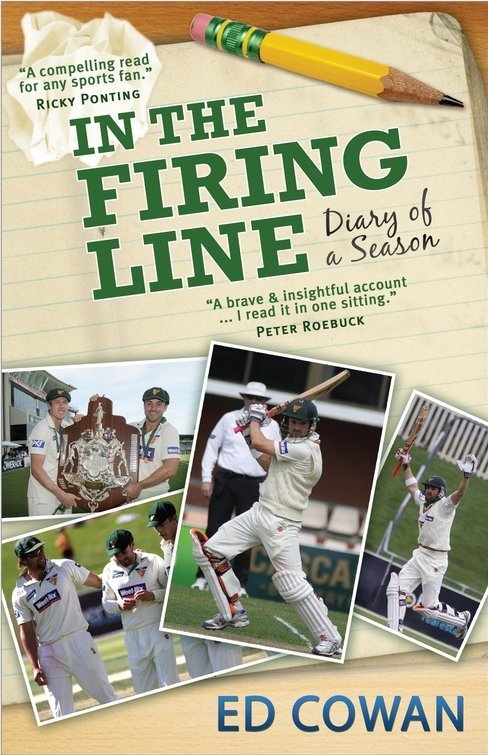
Day Twenty Eight: In the Firing Line - Ed Cowan (188pp, New South Publishing, 2011)
I have an affinity for Ed Cowan, probably because he provides hope that cricketers like myself can do something with their careers. He's a left-handed opening batsman, like me. He's a dour grinder, working away and accumulating slowly while the bloke down the other end gets all the glory with the big hits, like me. He's overly analytical about his game and loves the sport, yet values education highly, like me. And he's worked harder than anyone to realise the boyhood dream of most Australian children - to play Test cricket for his country.
This book is a diary of his second season playing for Tasmania, having succeeded in his first after moving from New South Wales. The thought process being that he can put all his feelings and thoughts down on paper, potentially helping his game in the process.
It follows his every move as a cricketer, from his early-season One Day cricket success and Sheffield Shield failings to his frustration to not being selected for T20 cricket, eventually to his resurgence to make a century and be awarded the Man of the Match award in the Shield final, an honour for any Australian domestic player.
The diary delves deep into the life of a cricketer, from Cowan's superstitions regarding coffee and socks (despite him recognising their logical futility), to his inability to build a vegetable garden in his time off. It gives an insight rarely seen from other player-written books, since Cowan actually wrote this, rather then employing a ghostwriter.
The writing itself is by no means fantastic, but is a class above other player-writers. Cowan is clearly well-read and able to analyse his life (one particularly interesting point is the irony that being university educated makes him an outsider in his career, rather than an insider) and the culture of cricket.
As a snapshot into the life of a player for a season, it is intriguing.
1 note
·
View note
Photo
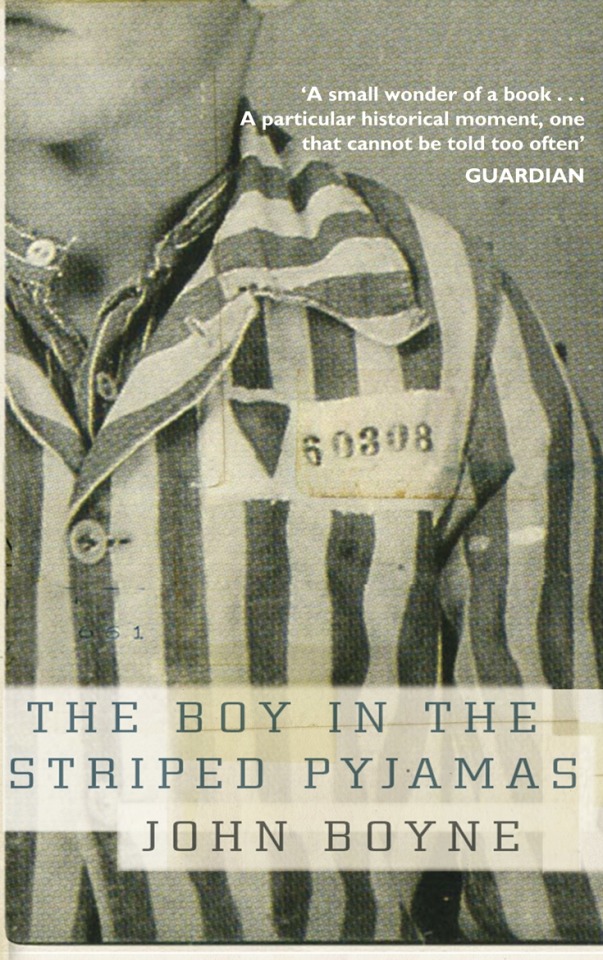
Day Twenty Seven: The Boy in the Striped Pyjamas - John Boyne (215pp, David Fickling Books, 2006)
In a word - feels.
World War Two-based literature is of great interest to me - Hitler is making his second appearance on this blog - and The Boy in the Striped Pyjamas is far and away the second best piece I've read based on the War (The Book Thief comfortably in first).
It tells the story of Bruno, a young boy born to a German SS officer, who is known personally by the Fuhrer (Fury) and is put in charge of the Auschwitz (Out-With) death camp. Bruno is naive, actually infuriatingly so at times (reminding me somewhat of Extremely Loud and Incredibly Close, which had a similarly infuriating child protagonist), and completely oblivious to what is going on around him. Some commentators have suggested he is a metaphor for German adults at the period - intentionally oblivious to the heinous crimes being committed right under their noses.
Again, like Extremely Loud and Incredibly Close, there's this underlying theme of a struggle to find cathartic release from difficult circumstances - Bruno facing what could be classed as the First World Problem of downsizing house, moving away from friends and becoming increasingly disconnected from his parents; whereas Shmuel, his friend on the other side of the fence, is suffering from a far more real threat, and is as such portrayed as wise beyond his 9 years. Both use their relationship with the other to escape their problems, and they fulfill each other's needs perfectly - Bruno smuggles food to the starving Jewish boy, and in return receives the companionship they both crave.
There's plenty of dramatic irony throughout, brought to the fore by Bruno's complete lack of awareness of the real world, and this makes the climax of the novel so incredibly sad - the reader watches Bruno walking into an unspeakably dire situation, and is absolutely powerless to change the outcome. The build to the finish makes it emotional rather than shocking, and I'm sure many a page of this book has been smudged by tears.
The way in which it is written is also remarkable, in that it gets the reader into the head of Bruno without being patronising. Boyne does this through the repetition of key phrases - giving some things long-winded, childish names that are big on description, intentional misunderstandings of 'big' words (hence 'Fury' and 'Out-With') and keeping a simplistic, childish philosophy. It creates a book that draws out your emotions and is difficult to put down.
A great read, hence why it was adapted to the screen. I highly recommend it.
#30booksin30days#John Boyne#Boy in the Striped Pyjamas#Bruno#Out-With#Holocaust#Fury#Hitler#Nazi Germany#WWII#Emotion
12 notes
·
View notes
Photo

Day Twenty Six: The Queen of Spades - Alexander Pushkin & 2BR02B - Kurt Vonnegut (Pushkin: 1834, Vonnegut: 1962)
I intended only to review The Queen of Spades, however I didn't realise just how short it was in print (surprising since the opera was a touch over 3 hours long). So, figuring I needed a bit more writing to account for a day, Vonnegut's dystopian short story complements the Russian classic-turned-opera-turned-injoke.
Alright then, let's start with Pushkin's work. The Queen of Spades is what I consider to be archetypally Russian literature from the mid 1800s - very character driven, set in the higher class and being a snapshot of life turned dramatic moreso than the manufactured events that pervade modern literature. It develops rather naturally - Hermann's infatuation with the three cards coming from hearing of the legend in conversation, not by some random act or chance meeting.
The story seems to develop organically, although the relationship with the Countess' young ward seems a tad rushed (but when you're covering weeks in a short story, that tends to happen), but Hermann's descent into insanity is handled very well.
I've never read much of Tolstoy, but from the glances I had at War and Peace and The Death of Ivan Ilych, the writing style seems remarkably similar (I may be extremely wrong), and as such they have a very similar feel. It is different, but interesting. Not to mention Pushkin has come up with the ultimate troll move about 175 years before the term was thought of.
Alright then, since Stacey's a bitch it's time to move on to Vonnegut.
Vonnegut and dystopian short stories go hand-in-hand, nobody does it better. Despite the hatred I still reserve for Harrison Bergeron, derived from having to analyse it in exorbitant detail in Year 11 Extension English, you can't deny that Vonnegut is talented.
2BR02B, as well as having the best short story title in existence (A Shakespeare reference and almost a pun. I mean come on!), is actually fantastically told. You've got this dystopian world in which people are immortal and population control is well in effect (voluntary assisted suicide and infanticide making up the policy) - essentially meaning that for your child to live, you must find someone to die in their place. The protagonist is awaiting triplets, and his grandfather-in-law is the only person willing to die.
Two representatives of the 'system' are present, telling the protagonist why the policy is in place and spouting propoganda about how well the remaining child will live on a roomy planet. All this goes on while a mural of a well-kept garden is being painted in the background - a metaphor for the nation-state they live in.
It is rich in that sort of metaphorical significance, and the ending is very typical of dystopian stories (no spoilers). It is interesting, and definitely challenges what would be a stereotypical thought on immortality.
So yeah, two interesting reads make for a pretty decent day.
#Alexander Pushkin#Queen of Spades#Stacey#Kurt Vonnegut#2BR02B#Dystopia#Russian Literature#Short Story#Population control#gambling
0 notes
Photo

Day Twenty Five: The Great Gatsby - F. Scott Fitzgerald (218pp, Charles Scribner's Sons, 1925)
Gatsby is renowned as one of the hallmark pieces of 20th century literature, and is seen as a quintessentially American book - distilling everything about the Roaring '20s in the US into a book that struggles to 200 pages. I'm still unsure where I stand on it.
When I first picked this book up, I was immediately struck by the way in which Fitzgerald writes - his control of language is fantastic, each word partnering the next perfectly and sentence flowing into sentence without any feeling of disjointedness. It is incredibly well written, and page after page of prose flows from his pen.
But after about 60 pages, I was struck by the feeling that nothing was happening. So I put it down, went off and did other stuff for quite a while, then came back.
And then, as the pace quickened towards the back end of the novel, I realised how important that beginning was - the book is so symbol-rich, and the delay in introducing any details about Jay Gatsby is a master stroke of Fitzgerald's writing; it almost functions as a mystery novel in that the reader tries to work out exactly who Gatsby is and what his motivations are.
John Green analysed Gatsby in his Crash Course English Literature series on YouTube (attempting to link crashed tumblr for me on two occasions, so I'm not trying again), and does a far better job than I ever could in getting the messages of the book across. From the motif of gold being used to decouple the colour from wealth and reattach it to death and a lack of caring, to the metaphorical resonance of the green light we are all reaching out for, Fitzgerald weaves a tapestry of intertwined ideas through a narrative that travels from the mundane to a crescendo of first world problems.
Character wise, nobody is hugely likeable. Gatsby is exorbitant and proves himself to be rather greedy and borderline pathetic by the end of the novel - nothing is good enough for him, while Daisy is superficial and morally bankrupt, Tom is just a cock, combining racist douchery with being a misogynistic f***trumpet to great effect, making it impossible not to hate his guts. Jordan Baker is irresponsible and careless, like the rest, while Nick seems devoid of any interesting characteristics whatsoever, which has the bonus effect of making him the perfect narrator.
I'm torn between the obvious literary significance of this book (I mean, as Green suggests, prohibition is the ultimate metaphor and Fitzgerald uses it wonderfully) and the lingering memory of being bored to tears by the opening 60 pages. All in all, it comes out well ahead of the bell curve.
Although if you ask me tomorrow, that might well change.
P.S. The John Green videos are available here and here.
#The Great Gatsby#F. Scott Fitzgerald#American Classic#john Green#Crash Course#Literature#Gatsby#30booksin30days
6 notes
·
View notes
Photo

Day Twenty Four: Alice's Adventures in Wonderland - Lewis Carroll (158pp, Macmillan, 1865)
Alice in Wonderland is another one of those classic books I've never read up until 30books in 30days, but once again it is a classic that didn't quite live up to my expectations.
Alice has to be the most annoying children's protagonist ever - and Mr Toad from Wind in the Willows was insufferable - in the way she idiotically blunders through every conversation, essentially threatening to eat everyone and then wondering why nobody wants to be around her any more, and the small fact that she complains endlessly about everything that happens, especially when it is of her own doing.
So apart from an insufferable protagonist (which may very well have been intended), what else does this book have? Pretty average characterisation, given nobody gets enough time to actually develop past one-liners or a solitary characteristic (I mean, the Queen is accurately summised by 'off with their head', and all the Mad Hatter actually gives us is an oblique reference to Poe [which is how I interpret the Raven/Writing desk riddle]).
I'm not going to bother spending any more time on this; I've got a few other reviews to catch up on. This book really isn't worth it in my opinion. Highly overrated.
#30booksin30days#Alice in Wonderland#overrated#Lewis Carroll#Alice's Adventures in Wonderland#classic#children's literature#Mad Hatter#Raven and a Writing Desk#Queen of Hearts
6 notes
·
View notes
Photo
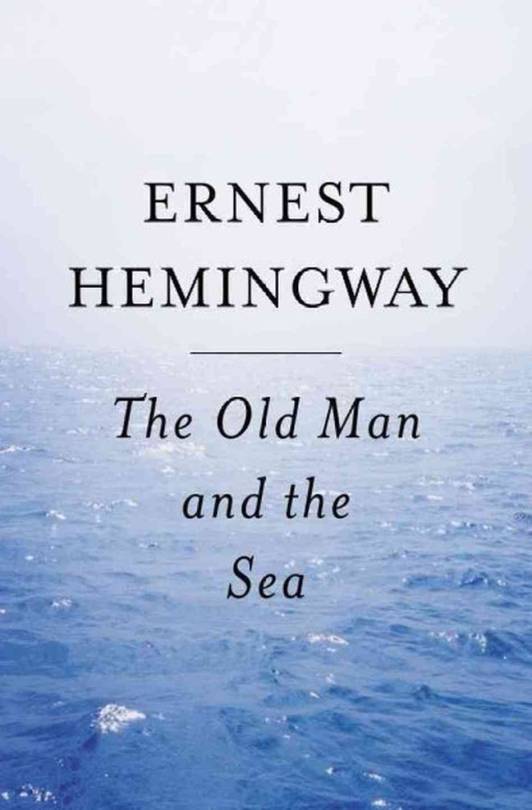
Day Twenty Three: The Old Man and the Sea - Ernest Hemingway (127pp, Charles Schribner's Sons, 1952)
This marks the first time I've read Hemingway, and it was extremely different to what I expected. I don't know what my expectations were, to be honest, but this wasn't it.
The first chapter or so felt strange - the prose seemed listless (perhaps stylistically?), and it didn't strike me as the kind of literature that would win prize after prize and send the author into the literary stratosphere. However, as time wore on I realised exactly why Hemingway is so highly regarded: as well as being an utter bad-ass in his personal life, he could write.
Ostensibly The Old Man and the Sea is about an old guy trying to catch a fish and, generally speaking, being quite stoic about this despite a lack of success. However, when one really looks into what Hemingway is writing, you get a narrative rich in symbols and metaphorical resonance - representing the honour derived from a struggle (or even death), the use of pride to motivate greatness, and generally speaking the virtue of hard work.
Santiago, the 'old man' is driven further out to sea than ever before by 85 days without a catch, his struggle and pride motivating him to meet a huge marlin which he attempts to catch, battling for days and nights. Santiago's language towards the marlin implies a feeling of respect towards it - the fish is a worthy challenger and they are equals in the natural world, locked in a battle to the death. However, the sharks which later appear are a complete contrast, simply moving appetites scavenging on the hard work of others.
Despite the opening dialogue dragging in parts (and, in my opinion, too few commas), Hemingway aptly uses "the great" Joe DiMaggio as a metaphorical Santiago and blends in religious allusions; and the lions on the beaches of Africa paradoxically mean everything and nothing simultaneously. As the reader delves further into the work, it becomes increasingly difficult to question it's place in history, and one completely understands Hemingway's.
While this book looks rather simplistic on the surface, it most definitely is not. Underestimate Hemingway at your peril; I know I did, and I was seriously wrong.
2 notes
·
View notes
Photo
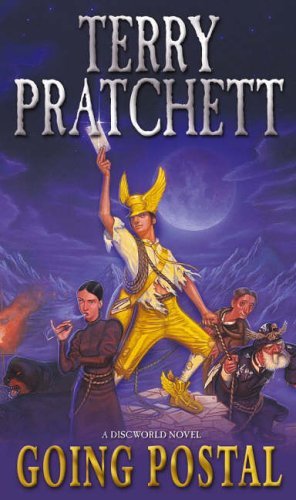
Day Twenty Two: Going Postal - Terry Pratchett (496pp, Doubleday, 2004)
The thirty-third edition of the Discworld series follows con-man Moist von Lipwig, given a second chance at life by Ankh-Morpork's ruling tyrant after apparently being hanged for his crimes. He is given no choice but to take over the failing post office.
Lipwig is joined by the eccentric (to put it mildly) postal team of the elderly Junior Postman Groat and his apprentice Stanley, as he discovers the office is filled with decades worth of undelivered mail that has taken on a life of its own, pushing him to the point of feeling 'nostalgic for the gallows'.
But over time he begins to restore the Office to his former glory, working alongside the elderly and golems (who are the most awesome characters ever, excluding Death) and challenging Reacher Gilt and his 'clacks', a visual version of telegraph systems.
Throughout he invents stamps, falls in love and walks around in a funny hat a lot, slowly realising being a con-man may not have been the best of moves, and that running the Post isn't that bad after all.
Pratchett is one of my favourite authors, and if it wasn't for this book's length it probably would have been one of the first handful of days. But alas, I was lazy and read novellas a lot. The characters are hilarious, it's well written and just enough absurdity is blended into semi-realistic humour to make his work entertaining. And let's be honest, Pratchett didn't become a 'Sir' without being able to write.
So highly regarded is this one of Pratchett's many works, it was the fourth Discworld book to be adapted to the screen (behind the Colour of Magic/Light Fantastic combination and the Hogfather). The TV show is actually pretty good, making golems even more awesome and featuring Tywin Lannister in his typical bad-ass role.
#Going Postal#Terry Pratchett#Tywin Lannister#30booksin30days#DiscWorld#Ankh-Morpork#Moist von Lipwig
1 note
·
View note
Photo
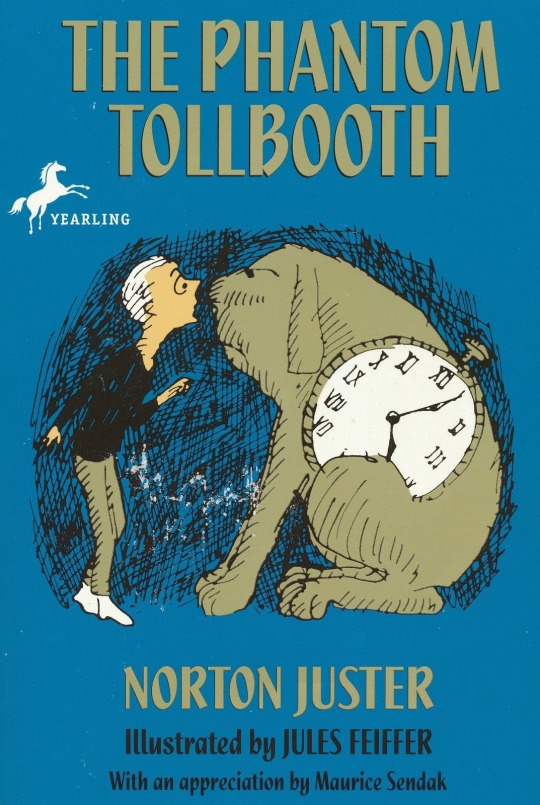
Day Twenty One: The Phantom Tollbooth - Norton Juster (256pp, Random House, 1961)
This is like Adventure Time, only with more puns. And predating the cartoon-with-a-cult-following by a good 45+ years. And the Phantom Tollbooth did cult followings before Adventure Time was a twinkle in some animator's eye. When someone says they like this book, the response is generally along the lines of 'of course you do; you're human'.
Like Adventure Time, the protagonists of The Phantom Tollbooth are a human boy and an anthropomorphically personified dog with non-dog powers (although stretching into any shape is a bit cooler than being an alarm clock, however watchdog is a far better pun). Similarly, they both grab their friends and go off on an adventure to save a princess. And once again similarly, they learn life lessons along the way.
How Cartoon Network has avoided an intellectual property suit, I do not know.
Aimed at children, the book is aimed at education while entertaining - allegories representing infinity and other complex ideas; the limited time you have to be educated is emphasised (and wastage frowned upon), and the way that Juster plays with language is ingenious.
He works puns into everything - they jump to the island known as Conclusions, to give but one example, and it just makes the book so fun to read, particularly when you appreciate even the worst of puns like I do. Yeah, puns are great. And apart from that, it also gives important life messages - the value of companionship, hard work and wisdom are all weaved throughout the narrative and made apparent to the reader. This is one another one of those pieces of children's literature that holds true to adult readings as well - it is of a higher class than you see coming out of kid's fiction these days.
Time flies when you're having fun, and it also rings true when you're reading this book.
15 notes
·
View notes
Photo
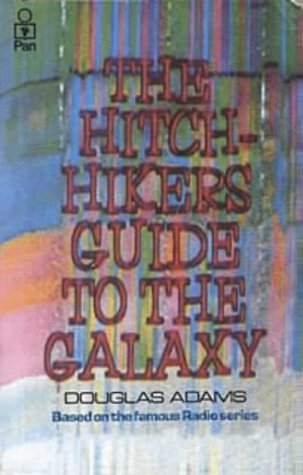
Day Twenty: The Hitchhiker's Guide to the Galaxy - Douglas Adams (159pp, Pan Books, 1979)
Hitchhiker's is one of the most hilarious, irreverent and entertaining classics I've ever read. Yes, it's quasi-absurdist parody of science fiction with a title taken straight from a drunken man lying in an Austrian field (who just so happens to be the author as well), but damn, it's impossible not to love it.
Arthur Dent is the most mediocre of mediocre protagonists (although he was portrayed by tumblr-darling Martin Freeman in the 2005 adaptation), Ford Prefect the most impractically named sidekick, and Marvin the most depressed android in existence (and probably the most lovable since R2-D2 hit screens). But characters aside, one cannot overlook the impact of the one-liners Hitchhiker's spawned. From 'Don't Panic' to 'Mostly Harmless', 'So long and thanks for all the fish' to 'Knowing where one's towel is', and providing the Answer to the Ultimate Question of Life, the Universe, and Everything (spoilers: it's 42), Adams writing has become an icon of popular culture. Even Google agrees with his answer.
What the question is, however, is far more complex. Give the mice 10 million years and we might find out.
There's irony in every corner, Arthur lying in front of bulldozers to prevent his house from being knocked down to build a bypass, only for the Earth itself to be destroyed to build an interstellar bypass, to the improbability that the improbability of being picked up by the improbability drive was exactly equal to a telephone number from a party Dent had visited - and the improbability that on the ship was the girl he was attempting to pick up at that establishment, improbably captained by the guy who stole her away, who now improbably has two heads and three arms. And they, by sheer chance, stumble upon the most improbable planet in existence, which had been lost for 5 million years. Now I don't know if Adams was a gambler, but if he was I'm sure no odds were too steep.
And that doesn't even mention a missile morphing into an existentially-challenged sperm whale. Or a space ship committing suicide.
There's just so much right about Hitchhiker's. It is just ridiculously epic. And has spawned way too many memetic tags for this post.
#Hitchhiker's#The Hitchhiker's Guide to the Galaxy#Marvin#42#the Answer to the Ultimate Question of Life the Universe and Everything#Don't Panic#So Long and Thanks for All the Fish#Improbability#existentially-challenged sperm whale#Douglas Adams#Classic#30booksin30days
1 note
·
View note
Photo
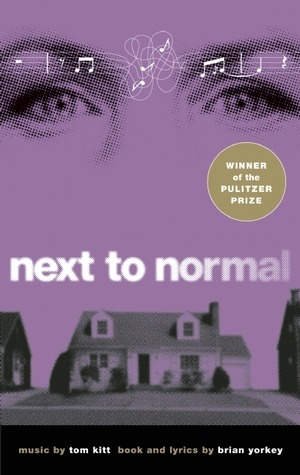
Day Nineteen: next to normal - Tom Kitt & Brian Yorkey (104pp, Theatre Communications Group, 2010)
There's a reason why I don't do musicals. In short, I don't understand them at all. Or if by some miracle I do roughly grasp what is actually going on, I have no way to review them or come up with any form of analysis. I won't pretend to know how to write this, because that would be insulting the intelligence of everyone here.
And I'll try to keep spoilers to a minimum.
What I did get out of it is that Diana's depressed/suicidal/delusional over the death of her son 16 years previously (and his grown-up ghost haunts her in said delusions), her husband has no idea what he's doing when it comes to helping her and is mildly depressed because of it, and their daughter Natalie is depressed because she's completely forgotten about, and as such turns to drugs to try to come to terms with the inherent darkness of her lonely soul.
So yeah, depression is a major theme; it's contagious.
You have four main arcs running simultaneously - the family trying to come to terms with their son's death, Diana's experiences with doctors and treatment, the lack of belonging in the family due to the lack of connectedness and Natalie's relationship with Henry.
I have no idea how to critique scriptwriting and/or song lyrics, but apparently this is all pretty good - it's won awards and is generally highly regarded. But as a pure narrative, the story in isolation holds up. If it were written in prose, it would come out as a fantastic novella.
It delves deep into a number of thought-provoking, serious issues, although I have no idea if this is normal for musicals or not (my only other experience is watching a few minutes of the satirical film adaptation of The Rocky Horror Show, and that barely counts).
But yeah, for someone with no experiences with musicals (and perhaps a bit of predisposed bias against them), this was surprisingly good. I may not end up a fan of musicals, but never again will I be judging them on the basis of a few moments of Rocky Horror and explanations of Grease.
#Musical#next to normal#Tom Kitt#Brian Yorkey#Pulitzer#30booksin30days#NoIdeaWhatImDoing#Depression#Drugs#Rocky Horror
1 note
·
View note
Photo
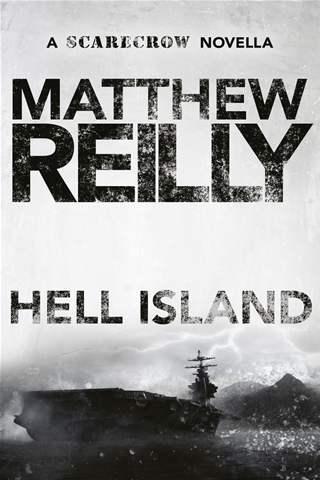
Day Eighteen: Hell Island - Matthew Reilly (108pp, Pan Macmillan, 2005)
Let's be honest here - Matthew Reilly isn't a fantastic writer of literature. He doesn't do flowery description or interweaved metaphors, nor does anything have some deeper symbolic meaning.
But when it comes to thrill-a-minute action, he damn well knows how to write.
Hell Island was originally written and published for 'Books Alive' in 2005, some sort of government initiative to get people to read or something. I'm not even going to bother finding out why. But yeah, this book was written for a particular event, probably on a tight deadline. And again, being brutally honest, the story is somewhat ridiculous for it.
I can imagine Reilly sitting at his desk going "Shit, the government wants this book next week and I haven't written anything yet. What can I write about? Oooh, look, a cute gorilla picture. OMG, what if Scarecrow fought genetically modified super-soldier gorillas. Heck yes!"
And that basically describes the book. Genetically modified, killer super soldier gorillas on an abandoned aircraft carrier fight 4 (well, 3) crack special forces teams, one led by Matthew Reilly staple character Shane Schofield. Blood, bullets and more blood characterise the 100 page novella, as the team are the only ones to stand a realistic chance against the killer gorillas.
It's one of those typical stories in which the hero survives despite half a ton of lead being fired at him from close range by trained professionals. But hey, it's nothing more than a bit of fun, who cares if it doesn't make any sense?
1 note
·
View note
Photo
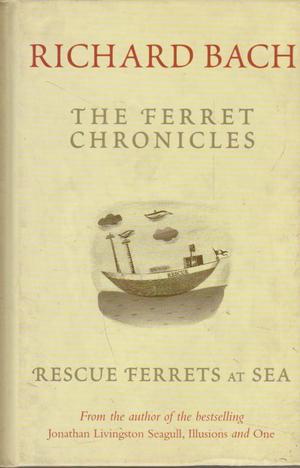
Day Seventeen: Rescue Ferrets at Sea - Richard Bach (128pp, Allen & Unwin, 2002)
In a word: heartwarming.
In a world where ferrets and human live in peaceful coexistence, Bethany Ferret has grown up hearing stories of heroic sea rescuers, saving animals whenever a ship is in distress - the animal kingdom's answer to the coastguard. She immediately decides to join the Sea Rescue fleet, and rises quickly through the ranks - a prodigy loved by all.
Having ascended to captaincy of her own boat, she is assigned a crew member from out of the ordinary - Chloe, a pop star doubling as a journalist, whose fame comes with a complete absence of ego and a work ethic you would never see coming out of Hollywood.
The novella follows Bethany from her childhood, reaching the crescendo of a dramatic night rescue in poor weather, testing her team to their very limits, and putting Chloe in the most dangerous situation she has ever faced.
Bach is an insightful author with fantastic control of language, his writing flowing beautifully and paced well, slipping in metaphors when required and setting character development against fingernail-chewing action. 128 pages isn't much to get you to relate to a character, but he does it brilliantly.
While a tale that can primarily be told to children, Rescue Ferrets at Sea is packed with deep messages of selflessness, sacrifice, modesty, humour and teamwork, to name but a few. And if you replace 'paws' with 'hands' or 'feet' where necessary, it seemingly morphs into a legitimate adult novella. Like The Wind in the Willows, there's something for everyone.
It was a fantastic little read that I struggled to put down (even for food), and I may now have to track down the whole series.
#Rescue Ferrets at Sea#Ferret Chronicles#Ferret#Richard Bach#Jonathan Livingston Seagull#childhood#30booksin30days#heartwarming#novella
7 notes
·
View notes